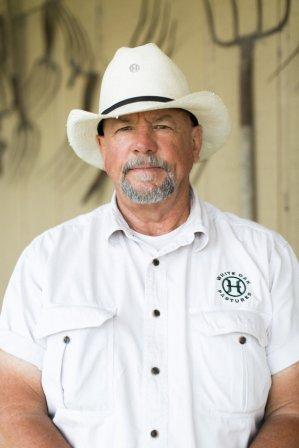 🖨️ Print post
🖨️ Print post
Will Harris. a fourth-generation cattleman, is the owner of White Oak Pastures in Bluffton, GA. Will attended the University of Georgia’s School of Agriculture, where he was trained in industrial farming methods. But in 1995, he decided to turn things around and return to farming the land in the manner his great-grandfather had done, 130 years before. He does not use pesticides and chemical fertilizers on the land or antibiotics or growth hormones on the animals. As Will puts it, “We take care of the land and herd, and they take care of us.”
This is why his farming method is farming at its best, and as it should be. His family and farm employees consistently look out for the animals, the land, and the people who produce and consume their goods.Their production practices are fair, sustainable, and humane.
In today’s episode, Will tells the story of the beauty and benefits of regenerative agriculture. Not only will you be charmed by his southern drawl but you will also come to understand how and why he transitioned to regenerative agriculture and how you can support this movement. It begins with knowing your farmer and proceeds with making conscious decisions about what you put on your plate. A healthy diet for people begins with a healthy environment on the farm where the food was cultivated and raised.
Notes
Will Harris is a farmer with a heart the size of Georgia! (I would say Texas but I got to spend time with him on his farm in Georgia last week, so Georgia, it is!) He was trained to be an industrial farmer, as his father was, but his conscience got the better of him. In 1995, he decided to turn the farm around and return to farming the land as his great-grandfather had, some 150 years ago. He eschewed antibiotics and hormones for the cattle; he left behind the pesticides and chemical fertilizers for the land. Now he sleeps better at night and has a thriving eco-system of a farm!
The benefits extend far and wide. He discusses the scope of the changes and how you can make a difference in the regenerative agriculture movement, as a consumer.
In today’s interview, Will touches on:
- why Will decided to change from the monoculture system (raising cattle only) to where his farm is today
why current “animal welfare” standards fall woefully short of what is morally right for animals - the purpose of industrialization (moving the farm to the factory farm model), centralization (when agriculture became regionalized) and commoditization (how the USDA’s minimum standards changed the quality of the products being sold)
- the unintended consequences that resulted—poor animal welfare, deteriorating soil, impoverishment of rural America
- the definition of true animal welfare, that allows animals to express instinctive behavior
- why cattle have been raised on corn (to make them fat/he likens it to candy for kids)
and why most farmers give them “performance enhancing drugs” (hormone implants & subtherapeutic antibiotics - how he initiated the change on the farm (giving up the drugs and the corn and confinement feeding)
- how he became aware of the impact of using chemical fertilizer and pesticides on the pasture
- the financial cost of the switch from industrialized farming to regenerative agriculture
- how White Oak Pastures is one of 17 Savory hubs, where people come to learn about regenerative agriculture
- the waste stream on his farm and how it benefits the land
- the growth in organic matter in their soil (over 5% now compared to just over .5% in the past)
- how White Oak pastures slaughters 140 cattle per day but industrialized farms slaughter 400 per hour!
- how a farm is like a stool with three legs: production, processing, marketing
- the definition of regenerative agriculture: using animal impact to improve the land, which in turn improves the lives of those who work on the farm, and positively impacts the community
- why most of his farming neighbors have not changed their practices
Resources:
Savory.global – holistic management information
Whiteoakpastures.com – info on Will’s farm and online store
http://cwmi.css.cornell.edu/composting.htm – Cornell university dead animal composting system
🖨️ Print post

Leave a Reply